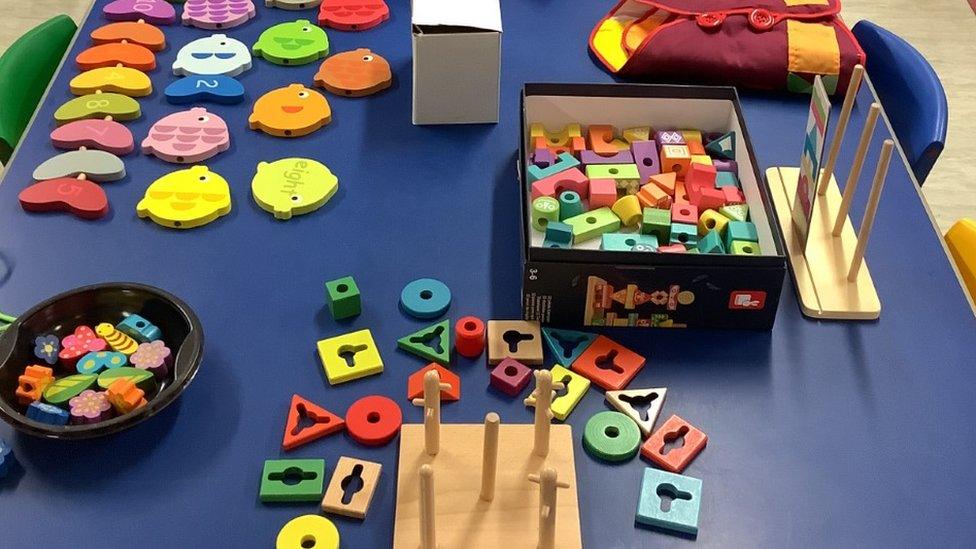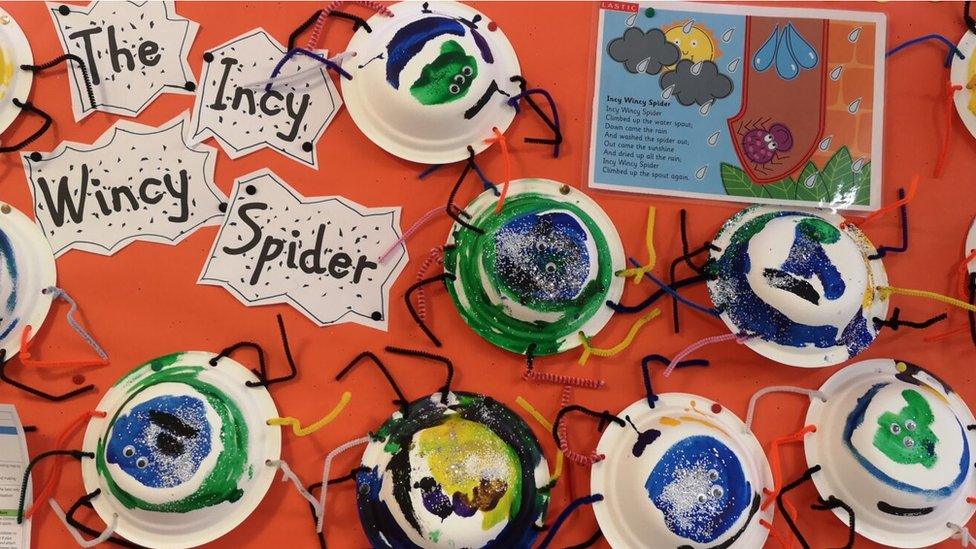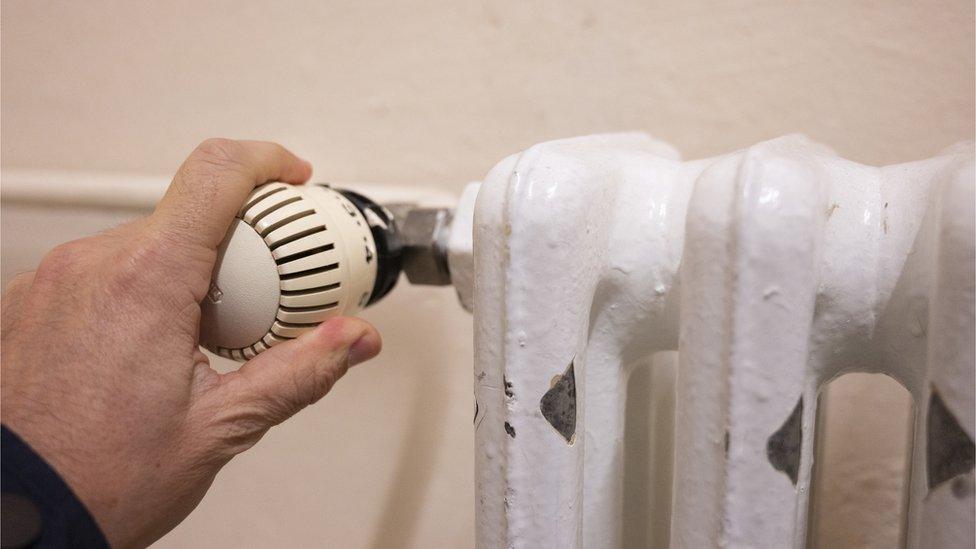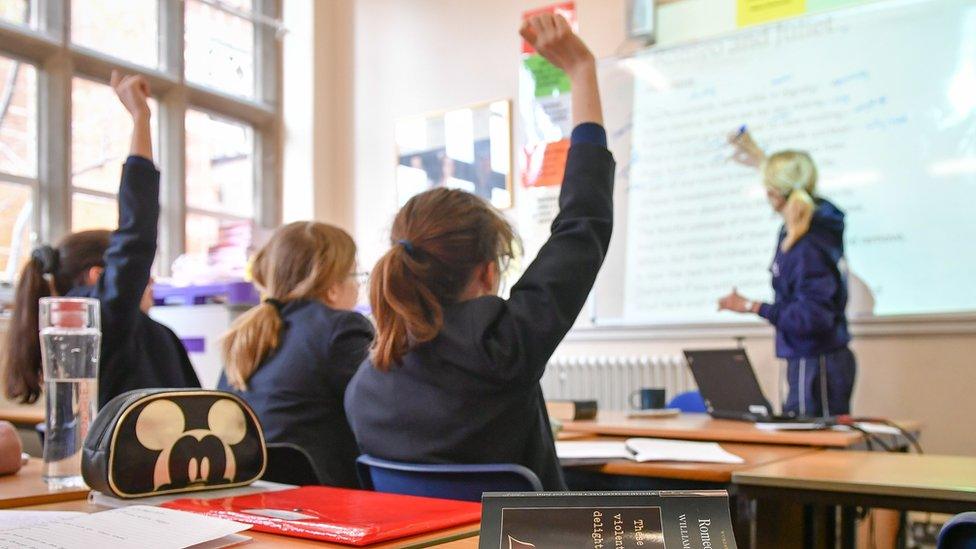Cost of living: Belfast pre-school 'at a loss' over how to stay open
- Published

More than 350 pre-schools in Northern Ireland are in the non-statutory or private sector
A pre-school leader in Belfast has said she is "at a loss" over how to keep her school open due to rising costs.
Donna Mulhern from St Bernard's Pre-School said there was "despair" in the non-statutory pre-school sector at a lack of adequate funding.
Ms Mulhern has written to assembly members and other officials to highlight the issues.
More than 350 pre-schools in NI are in the non-statutory or private sector and receive government funding for pupils.
They are known as voluntary pre-schools as they were originally playgroups which relied on contributions from parents.
But for many years they have been part of the formal pre-school system in Northern Ireland and have about 7,300 three and four-year-old pupils in total.
They are not childcare and are similar to statutory nursery schools or primary schools with nursery units, as they also have to deliver the pre-school curriculum to pupils and are subject to inspection.
In England, meanwhile, some nurseries have also said they face closure due to a real-terms funding cut.
Ms Mulhern, who is also the chairperson of the umbrella group for independent pre-schools, told BBC News NI that the perception of pre-schools in Northern Ireland needed to change.
"The name playgroup needs to change because it is not representative of what we do," she said.
St Bernard's in south Belfast has 26 children and four members of staff; such non-statutory pre-schools have to have one staff member for every eight pupils.
But in nursery schools or nursery units in primary schools, the Department of Education (DE) only requires one staff member for every 13 pupils.
Ms Mulhern said that was just one of the reasons for the financial pressures faced by her sector.
"From my funding I have to pay four staff, while a nursery school would only need two staff for 26 pupils," she said.
"But both types of schools have to plan and implement the curriculum, support children with special educational needs, hold parent teacher meetings and provide end-of-year reports.
"You could not put a bus ticket between us as we all provide and work to the same principles underpinning pre-school education."

Pre-schools like St Bernard's get £2,101 per pupil a year
But Ms Mulhern said pre-schools like hers were given less funding per pupil than nursery schools.
Her pre-school, which operates on a not-for-profit basis and which children are funded to attend for two and a half hours a day, gets £2,101 per pupil a year.
But nursery schools or nursery units in schools get between £2,123 and £3,444 per pupil a year depending on whether a pupil is part or full time.
The former education minister, Michelle McIlveen, had previously replied to correspondence from Ms Mulhern regarding the disparity in funding.
Ms McIlveen wrote that "direct comparison between the funding rates for statutory and non-statutory pre-school providers cannot be made".
"The costs are not directly comparable and vary due to a number of factors including the different types of premises, levels of qualifications of staff, child to adult ratios and pay and conditions."
But Ms Mulhern said nursery schools or units could also receive some other funding which was not available to non-statutory pre-schools.
She said the money she received each month did not meet the monthly running costs.

Leaders are worried about the rising costs of running pre-schools
"What would happen if we had to close our doors because we could not pay our staff their wages, pay our bills, buy resources for the children?" she said.
"How would parents react?
"Childcare is at an all-time high, day care centres can increase their charges to keep up with ever increasing costs.
"We can't do that."
Before she left office, Ms McIlveen announced plans to increase the time all children spent in pre-school education to 22.5 hours a week.
But Ms Mulhern said that plan would only work if pre-schools were properly funded.
"If funding is not increased with immediate effect, some non-statutory pre-schools in Northern Ireland will close their doors," she said.
Related topics
- Published22 September 2022

- Published29 September 2022

